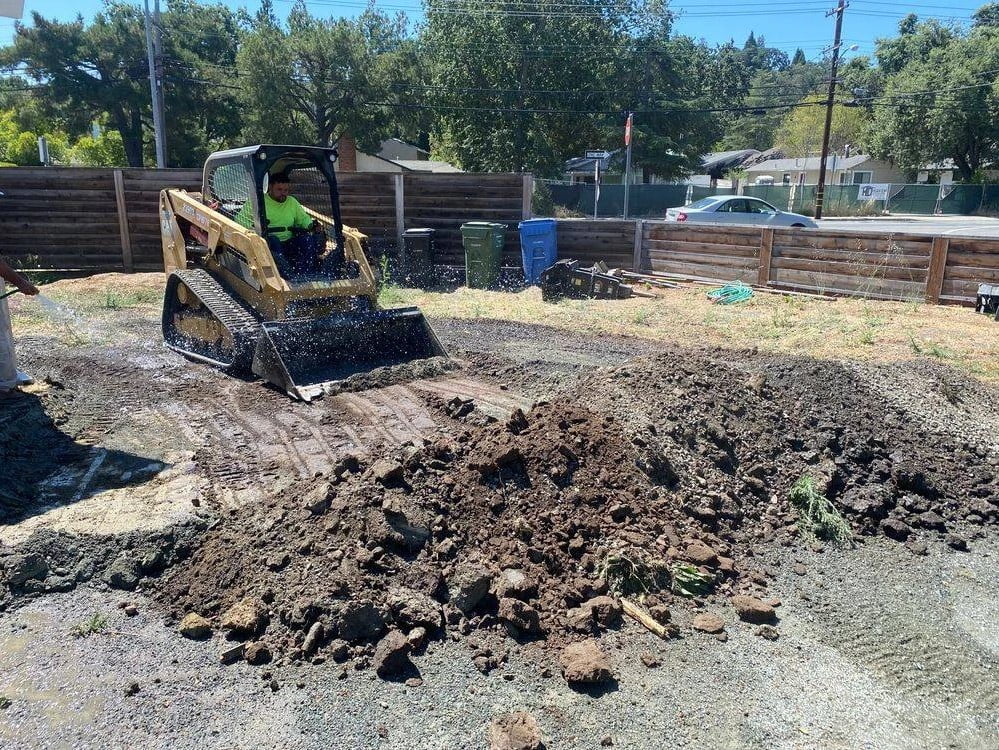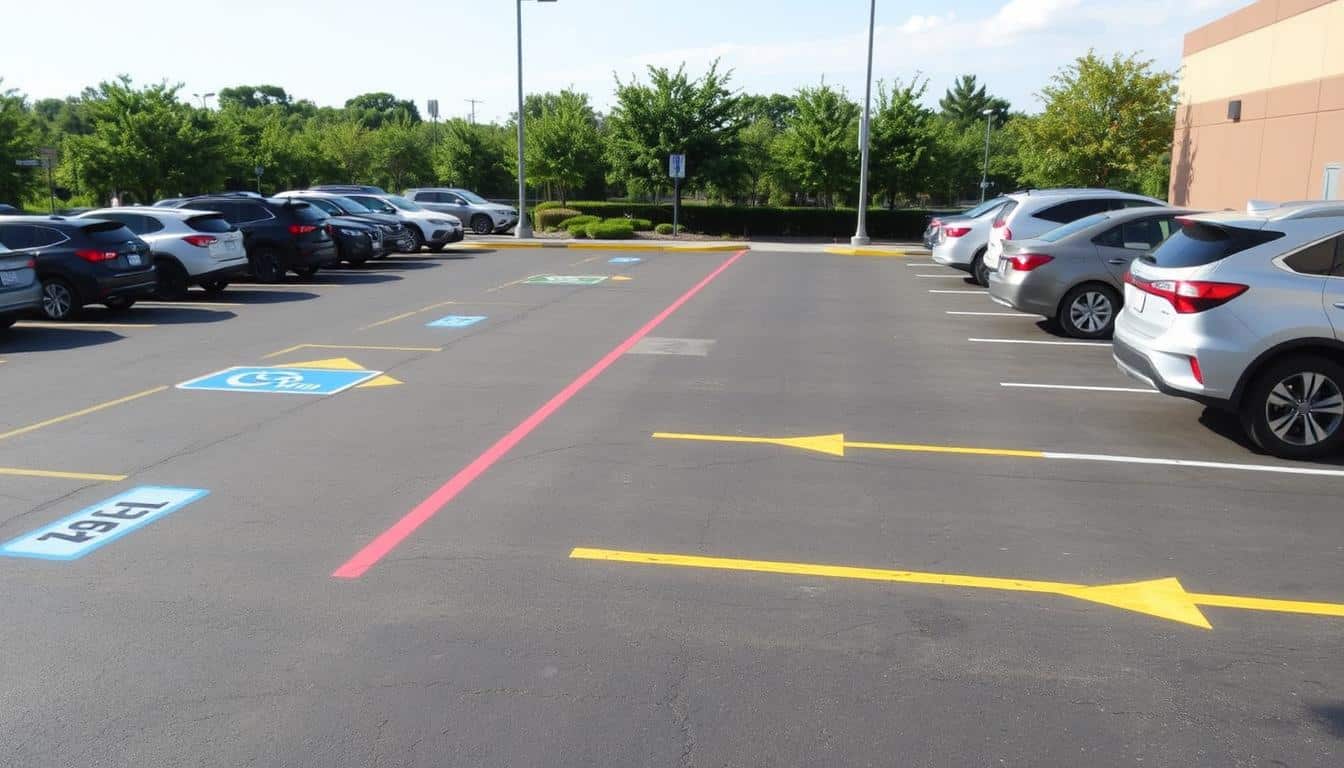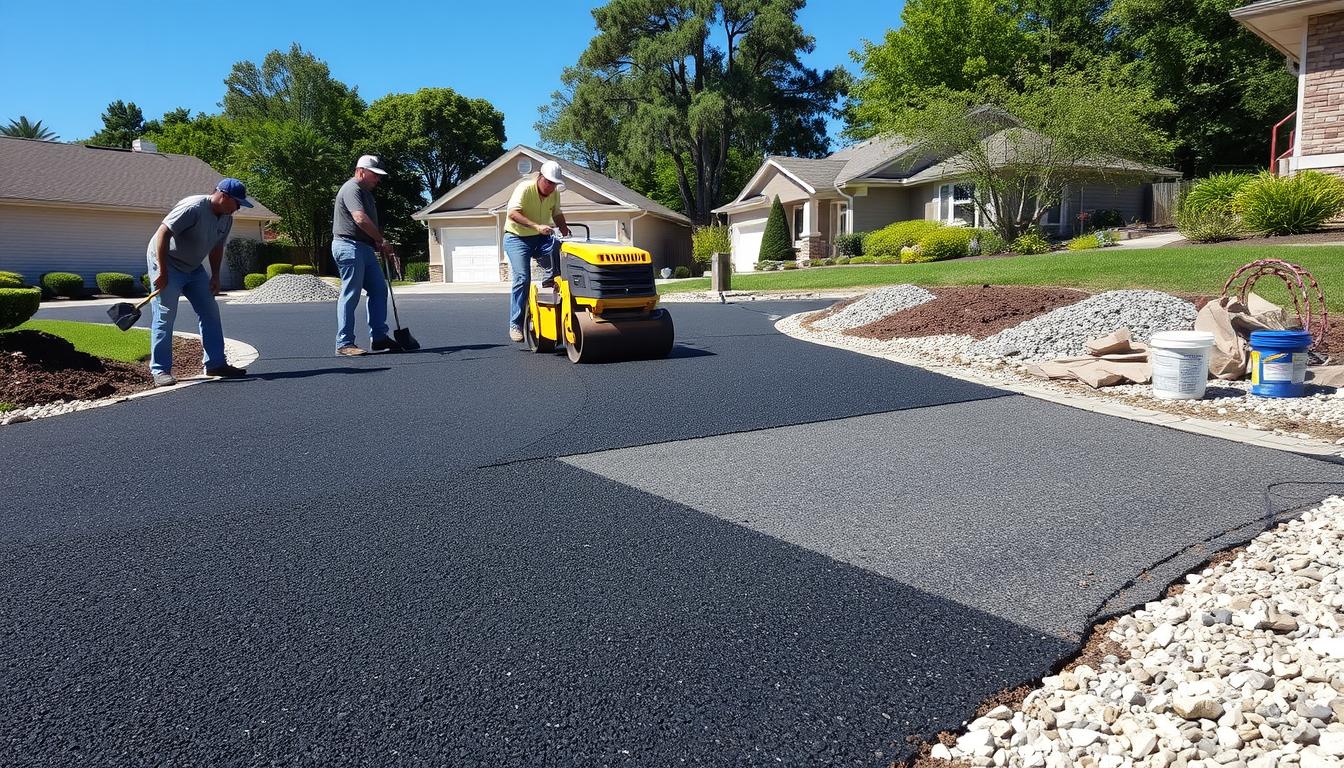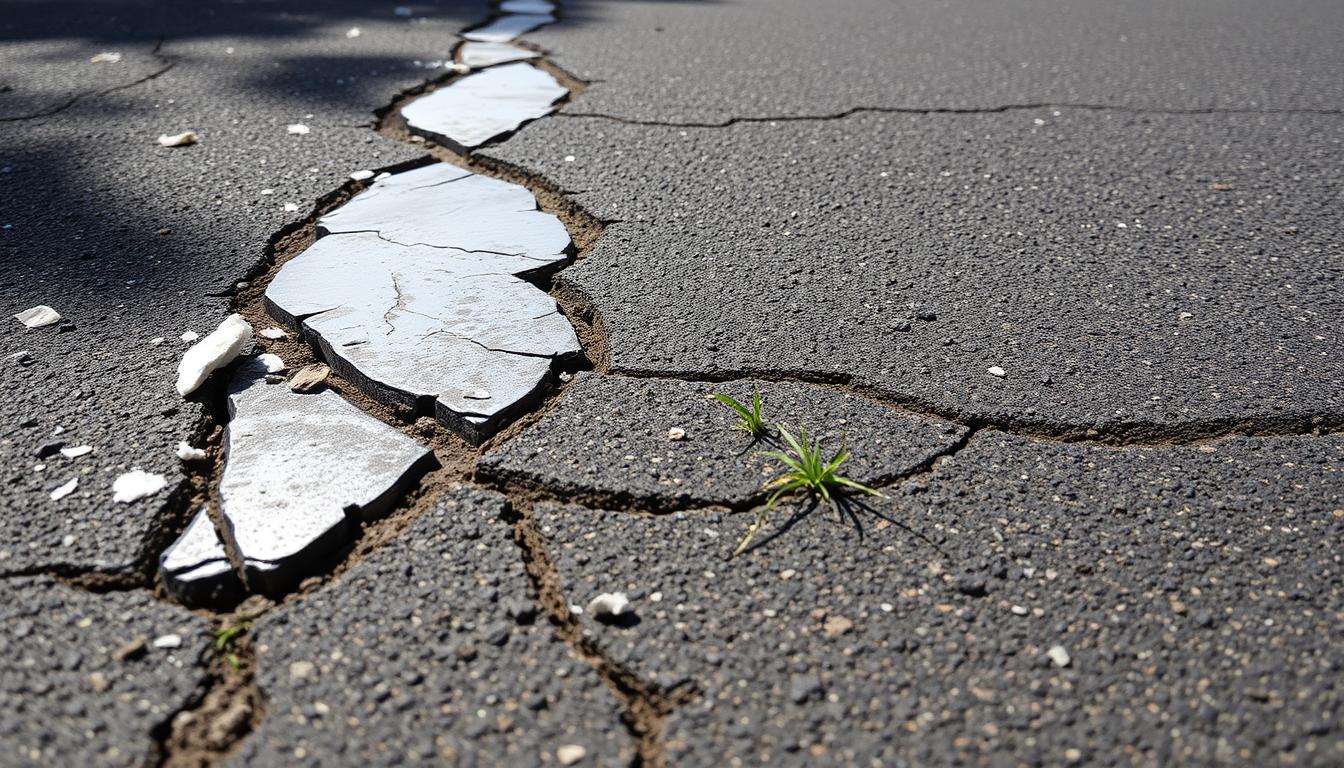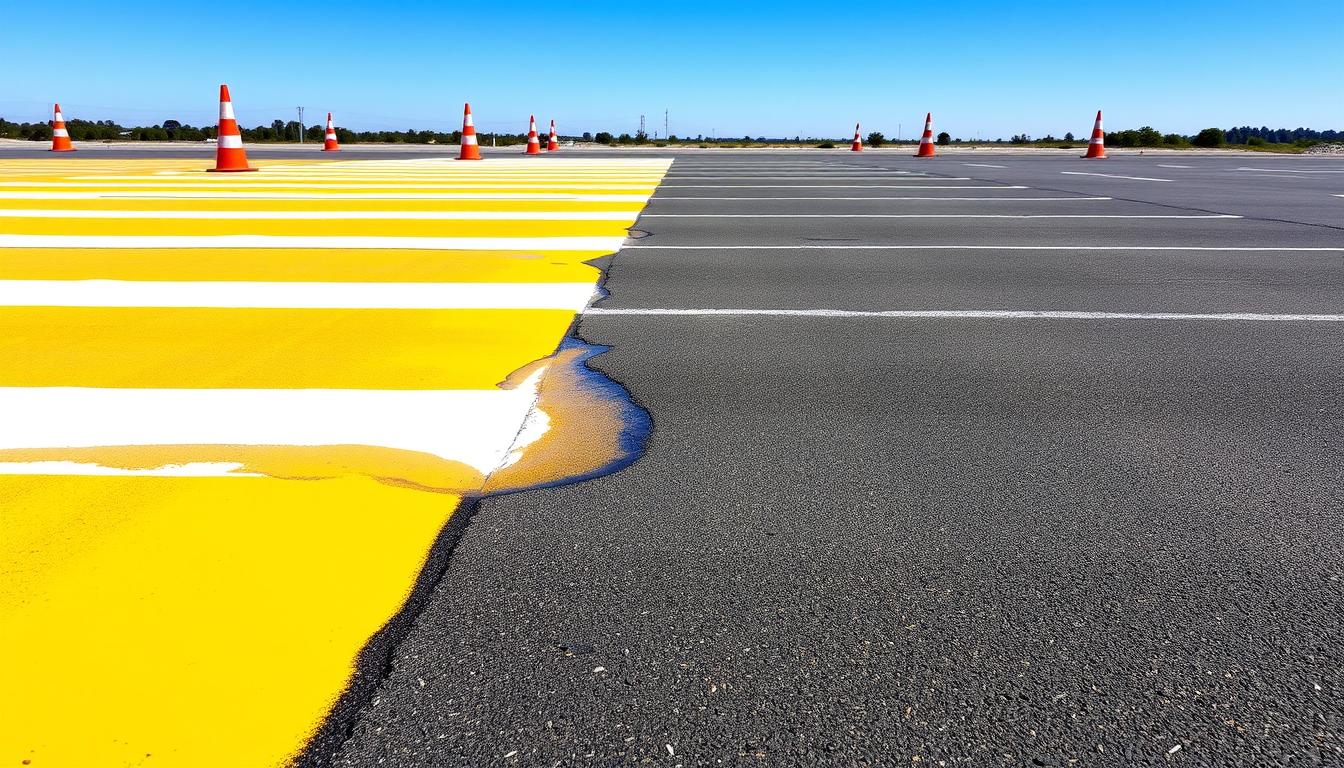Ever thought about how long an asphalt driveway lasts? Does it just fade away in a few years, or can it endure for decades? Its longevity hinges on several factors, which we’ll explore here. HT Paving provides top-notch asphalt patch services for smooth, lasting repairs on roads and driveways.
The lifespan of an asphalt driveway depends on its installation, usage, weather conditions, and maintenance. Proper installation, gentle usage, and regular upkeep are essential. Each of these elements plays a significant role in maintaining the driveway’s condition.
A solid foundation is vital for a driveway’s longevity. The ground beneath must be firm and well-packed. Ensure the soil is graded and compacted properly. For driveways with heavy traffic, like that from trucks, a thicker asphalt layer is necessary.
Weather also impacts the driveway’s durability. Snow, ice, and extreme heat can cause damage over time, leading to cracks and potholes. Regular inspections and repairs are critical to extend its lifespan.
To keep your driveway in excellent condition, maintenance is key. Addressing cracks and applying a protective coating regularly is essential. This prevents water infiltration and subsequent damage. Such proactive measures can significantly extend your driveway’s life.
Key Takeaways:
- The lifespan of an asphalt driveway ranges from 15 to 30 years.
- Getting the installation right, including the foundation, is critical for durability.
- Heavy vehicles require a stronger asphalt layer for support.
- Extreme weather can wear down the driveway.
- Maintaining the driveway through crack filling and new coats can extend its life.
- Contact HT Paving for all your asphalt needs in San Mateo, CA, and surrounding areas.
Factors Affecting the Lifespan of Asphalt Driveways
To make an asphalt driveway last longer, it’s important to know what affects it. Extreme heat can soften the asphalt, leading to cracks. Also, big vehicles and equipment can damage the surface.
Regular maintenance is key. Sealant protects against weather and moisture. It also stops cracks from getting worse. So, fixing cracks early is essential.
Water damage from cold cycles can also harm the asphalt. When water freezes, it expands, causing cracks and potholes. Water contracts as it thaws, making the damage worse. Good drainage and avoiding excess water can help.
Heavy objects can leave marks or damage the driveway. Using supports for these objects can prevent this harm. These actions help the driveway last longer.
By addressing these issues and keeping up with care, homeowners can extend the life of their asphalt driveways.
Asphalt Roadway Life Cycle
Asphalt roadways have a life cycle over 25 years. It’s important to know this for maintaining roads well. This keeps asphalt surfaces lasting longer.
The life cycle begins with a newly laid asphalt. It’s at its best for about 5 years. During this time, doing things like sealcoating helps keep it from wearing down.
Between years 5 to 7 comes the second stage. Here, the first sealcoat might need to be redone. Or, you could add a new one. This stage also sees minor repairs to fix small issues.
Between years 7 to 15, the third stage focuses on preventing big problems. Regular sealcoating, crack sealing, and repairing help the road last longer. This stage keeps the road from serious damage.
By year 15, the road needs bigger repairs in the fourth stage. Things like overlays or resurfacing are done to fix it up. These repairs are important to keep the road safe.
After 25 years, a full replacement of the road might be needed. This starts the process over with a new road. This is the final stage of an asphalt road’s life cycle.
Asphalt Patch: Why Asphalt Overlays are Essential
Asphalt overlays can make a big difference at the end of a road’s life. They add a new layer of asphalt, making the road look and feel new. This also makes the road more durable.
Overlays are a cost-effective way to fix roads without a full rebuild. They’re cheaper than starting from scratch. They also fix issues like cracks and wear, keeping the road safe and strong.
Regular maintenance is key to keeping roads in good shape. This includes sealing cracks and applying overlays when needed. Doing this helps the road last for many years.
Conclusion
The lifespan of asphalt depends on several important factors. These include how it’s installed, how well it’s maintained, and the weather. By taking care of these, your asphalt areas can last for many years.
Keeping a close eye on your asphalt and fixing problems early is key. This means handling things like cracks and applying protective layers regularly. Doing so will help your asphalt last longer and save you from big repair bills.
For tasks like fixing patches, potholes, and keeping roads and driveways in good shape, getting advice from an expert is wise. They know the best ways to install and care for asphalt. This wisdom can make your surfaces stronger and last longer.
Contact HT Paving for all your asphalt needs in San Mateo, CA, and surrounding areas.
FAQ
How long does an asphalt driveway last?
An asphalt driveway can last from 15 to 30 years. This depends on how well it was installed and used. The local climate and maintenance also play a big role.
What factors can affect the lifespan of an asphalt driveway?
Many things can shorten an asphalt driveway’s life. Weather, usage, and maintenance are key factors. Extreme heat, heavy vehicles, and water damage can all take a toll.
Regular maintenance, like fixing cracks and sealcoating, can help extend its life.
What is the life cycle of an asphalt roadway?
An asphalt road usually lasts about 25 years. The first 5 years, it’s in excellent condition. Then, it needs some upkeep, like sealcoating and small repairs, in the next 2 years.
From year 7 to 15, regular maintenance is essential to keep it in good shape. Around the 15th year, bigger repairs, like adding a new layer of asphalt, might be needed. By year 25, it might need a complete replacement.
How can I maximize the lifespan of an asphalt driveway?
To make an asphalt driveway last longer, focus on good installation and upkeep. Ensure the ground is properly graded and compacted during installation. Use high-quality asphalt and pave it correctly.
Regular maintenance, like fixing cracks and sealcoating, is also important. Protect the driveway from extreme heat, heavy items, and water to extend its life. With proper care, it can last up to 30 years.



